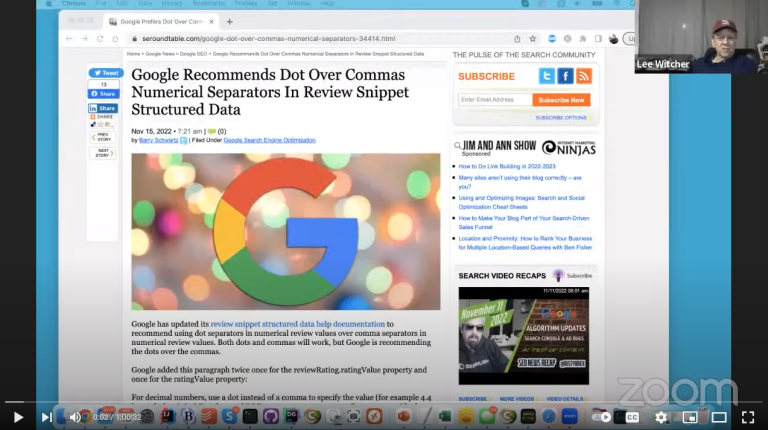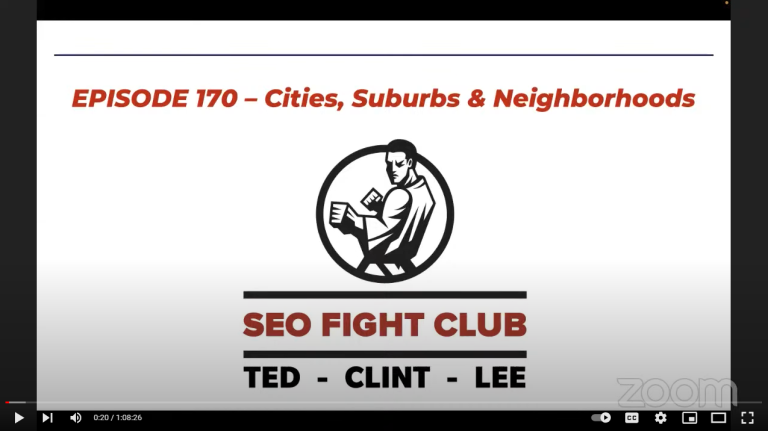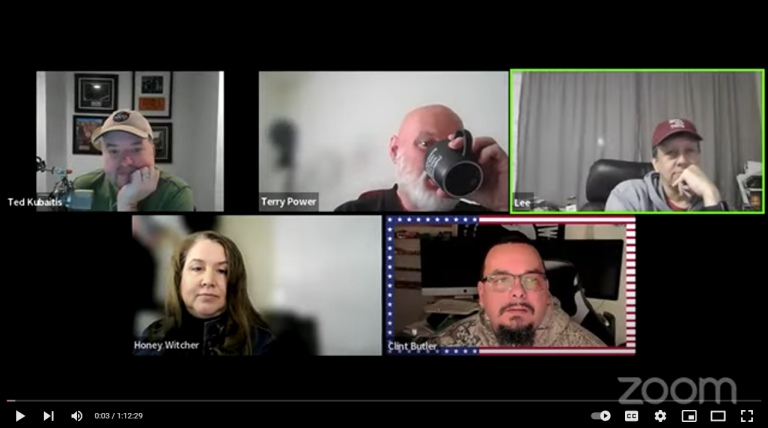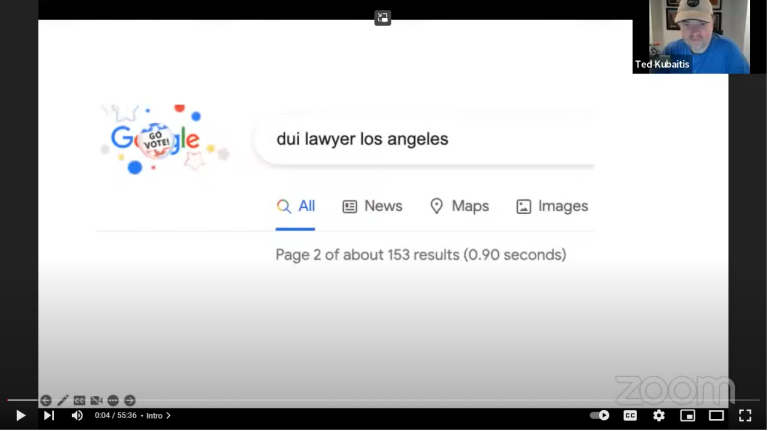SEO Fight Club – Episode 145 – SEO Q & A
SEO Fight Club / By
“Exploring SEO Strategies: From Private Companies To Cora 7 And Digital Ear’s YouTube”
– I have been following the latest developments at a private company and am fascinated by their strategy for managing the workforce.
– It would be a great opportunity to observe how they identify problems and decide who should stay or go.
– Studying this situation from an SEO perspective could provide insight into deciding what content is considered authoritative and valuable.
– Recently, Google has stated that website content does not need 200,000 words to be authoritative which caught my attention as SEO than analysts are familiar with that number in context of research.
– Recently, I participated in an online webinar about Cora 7 where we discussed current topics related to SEOS
– To learn more about Cora 7 you can register for the upcoming webinar hosted by Patrick Tuttle’s group The Ranking Store
– I also recently had the opportunity to discuss affiliate stuff on Digital Ear’s YouTube channel
– “SEO This Week”.
==========
“Authority Without Words: Ranking High With Fewer Than 6,000 Words”
– I recently encountered a statistic in SEO news that suggested an upper bound of 200,000 words per page.
– This triggered my interest since this is the same number we have seen when testing how many words can a page have indexed for.
– It turns out you don’t need 200,000 words to be considered authoritative
– even websites like “addicting games” with almost no visible text content often rank high.
– Authority and relevance are two separate things; while relevancy needs words, authority does not necessarily require them.
– Through testing it appears that anywhere from 1,000 to 6,000 total word count is sufficient for ranking purposes (with keyword usage being only a fraction of that).
==========
“Unlocking The Secrets Of SEO: Quality, Authority, And Best Practices”
• Quality rater guidelines are one of the few resources we have into the algorithm, which can be applied to look for expertise and authority.
• The magical number ‘200,000 words’ for being considered authoritative is likely not from Google but rather a patient zero research source.
• Best SEO practices include a combination of keywords, entities, LSI and all of the above in page linking.
• Entity recognition tools only work on certain languages so it’s important to consider LSI keywords as they often overlap with entity lists.
==========
“Investigate Before You Investigate: The Benefits Of LSI Keywords”
– I don’t understand the smear campaign against Latent Semantic Indexing (LSI) keywords and so suggest we let them have their day.
– To link pages well, test exact match anchors until they stop improving rankings and then move on to the next thing.
– The top 10 SEO factors include diversity of entities and LSI, so go wide before you go deep with them.
– Multi variable tests are hard when determining SEO findings in the wild, but Kyle Roof’s advice helped me see it from a money making perspective.
– Testing has shown that single variables can only show whether it is a factor or not
==========
“Testing SEO–It’s All About The Numbers”
-Effective SEO testing involves multi-variable testing to rate tags and other data.
-Finding the actual value of these variables requires applying them in real word situations and observing what happens.
-Having a bias for action is a huge advantage when it comes to implementing SEO tests.
-Unlike predicting an apple falling out of the tree, the outcomes of SEO tests are less reliable.
-Focusing on two or three dozen suspects instead of 13,000 can help get better results with your time invested into experimenting with different factors or keywords.
==========
“Testing Beyond The Lab: Proving Results In The Wild”
• When you are testing in the wild (on real sites) there is a degree of natural volatility with rankings that you don’t see when controlling for a single variable.
• It’s important to demonstrate your results by doing the same experiment multiple times on different sites to prove that it was an actual result and not just natural fluctuation.
• When new to testing, people often think Google has two separate algorithms
– one for fake keywords and one for real keywords. This isn’t true; the algorithm is still the same regardless of keyword type.
• We can control all other factors (content length, backlink profiles, H2s) when conducting testing in laboratory environments.





